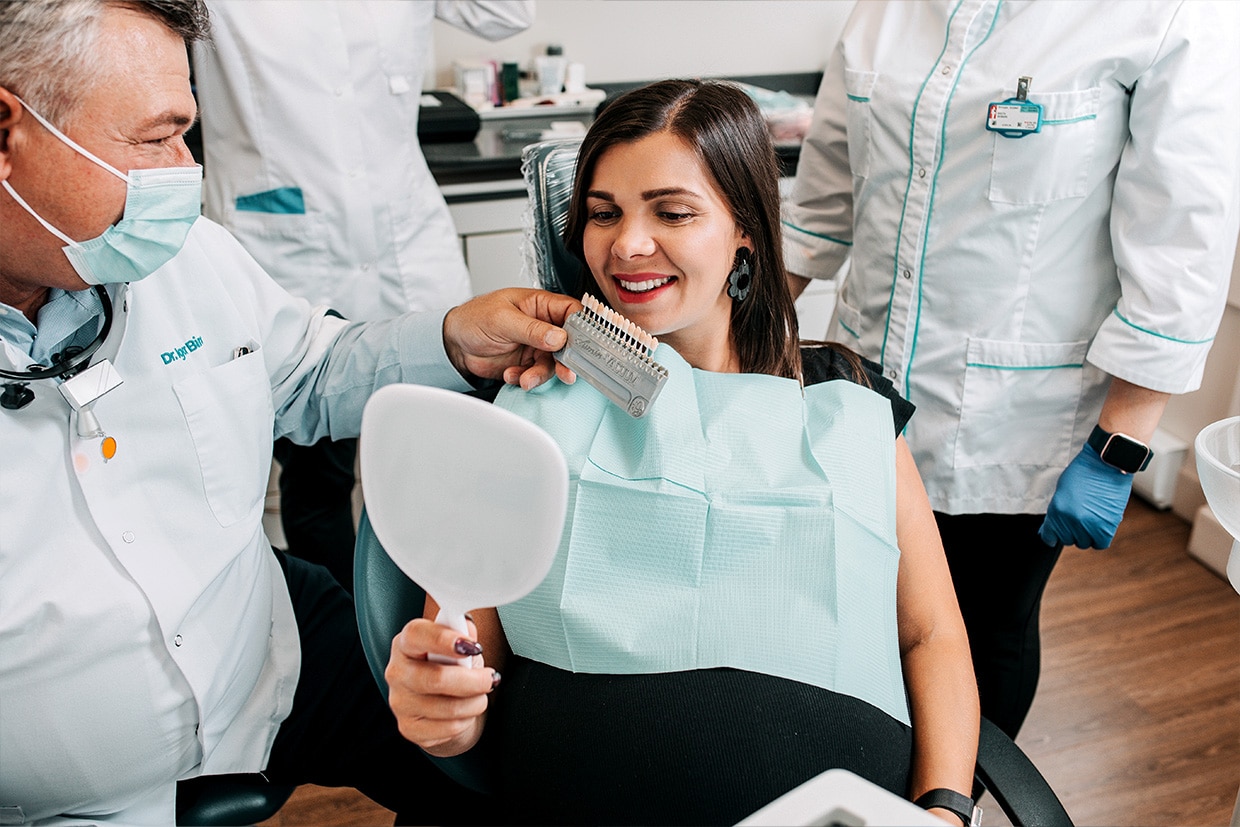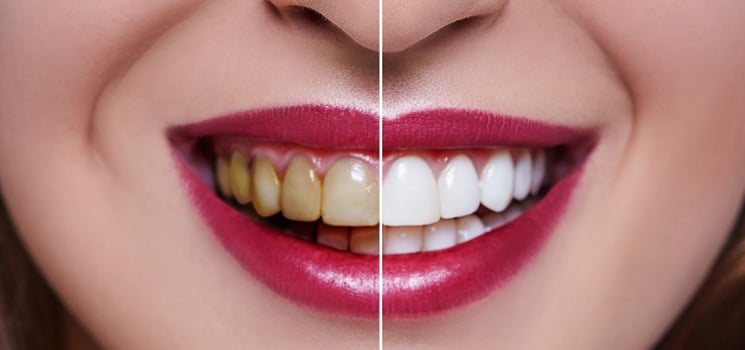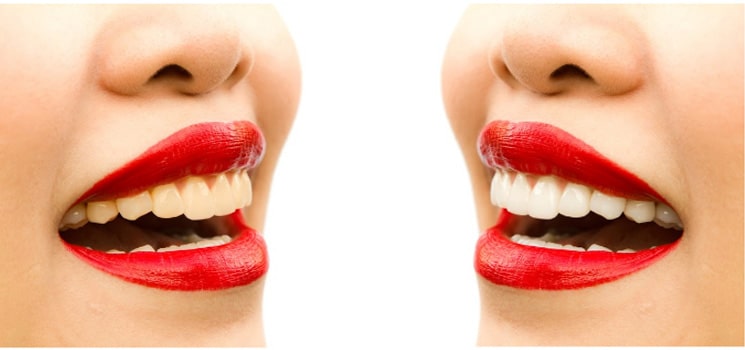Cosmetic dentistry
Cosmetic dentistry in Laval

Cosmetic dentistry is used to correct imperfections and/or abnormalities of tooth colour and structure.
For example, to correct a small chip on a tooth, to fill a diastema (a space in between teeth), to straighten teeth, or to change the shape or colour of one or multiple malformed teeth due to fluorosis, osteogenesis imperfecta, or tetracylin. One way of doing this is with porcelain veneers – a conservative preparation of the facial surface of the tooth is performed in order to accommodate the veneer.
The classic veneer is an indirect restoration made with porcelain. Also available is a chair-side direct composite veneer. Another example of cosmetic dentistry is tooth bleaching (whitening) which may be of service for patients who are unsatisfied with the shade of their teeth.
Veneers are not always possible however. Sometimes if there is a malocclusion, or a heavily restored tooth, a crown would be indicated. This treatment is a little more complex, since the entire circumference of the tooth needs to be prepared. The tooth is then covered up with a durable ceramic cap.
Cosmetic dentistry
Direct chair-side veneers

Direct chair-side veneers are indicated when there is a minor defect in incisors or canines. They are a cost-effective alternative to indirect porcelain veneers, and have a good short-term prognosis. The medium- and long-term prognosis are guarded, however. With time, the composite may change colour, wear down, or completely fall off the tooth.
Cosmetic dentistry
Indirect porcelain veneers

Indirect porcelain veneers are made up of a thin layer of ceramic, and are cemented onto healthy tooth structure (will not stick to existing restorations). This thin layer of ceramic can be anywhere from 0.6 mm to 1.0 mm. Only a dentist may properly evaluate whether or not veneers are right for you. When done correctly, veneers can be very esthetic and durable.
Cosmetic dentistry
Teeth whitening

Over the past few years, Hollywood stars have made a new trend very popular: teeth whitening. White teeth give off the appearance of a healthier smile and “Hollywood Smiles” are becoming more and more trendy.
There are many products on the market for tooth whitening, but the question we must ask ourselves is the following: Is tooth whitening appropriate for everyone? The answer is no, not always.
Whitening products are usually based on a formula containing either hydrogen peroxide or carbamide peroxide, which both partially demineralize the teeth. Anyone considering teeth whitening should first consult a dentist to determine the cause and the degree of discoloration. This will allow us to properly set your expectations, by determining whether or not the desired outcome is attainable.
Tooth whitening may cause generalized or localized sensitivity, or even soft tissue irritation. In order to ensure safe tooth whitening, it should be done under a dentist’s supervision.
Centre dentaire Birca offers many different whitening options that can be self-administered at night. We would happily see you for a consultation so that we may select one of our certified products that is right for you. If you are eligible for tooth whitening, we will then take moulds of your teeth in order to fabricate custom whitening trays into which you will apply the product.
Here are a few pointers in regards to whitening:
- Before inserting whitening trays, be sure to adequately brush and floss teeth.
- Fill the anterior third of the tray with the gel that has been chosen for you.
- Wear the trays for the recommended time discussed with your dentist and/or auxiliary staff.
- After the recommended time has passed, remove, rinse and delicately clean the whitening tray.
- During this period, do not drink red wine or dark soft drinks like Cocacola; do not eat blueberries, dark chocolate, carrots or any other foods that may stain teeth, and certainly don’t smoke.
- It’s normal for the teeth to be a little sensitive. If sensitivity becomes worse, stop treatment for a few days. In theory, the sensitivity should die down. If not, please contact us for more information.
- A rigorous follow-up must be done every 6 months in order to avoid hypersensitivity and/or tooth demineralization.

